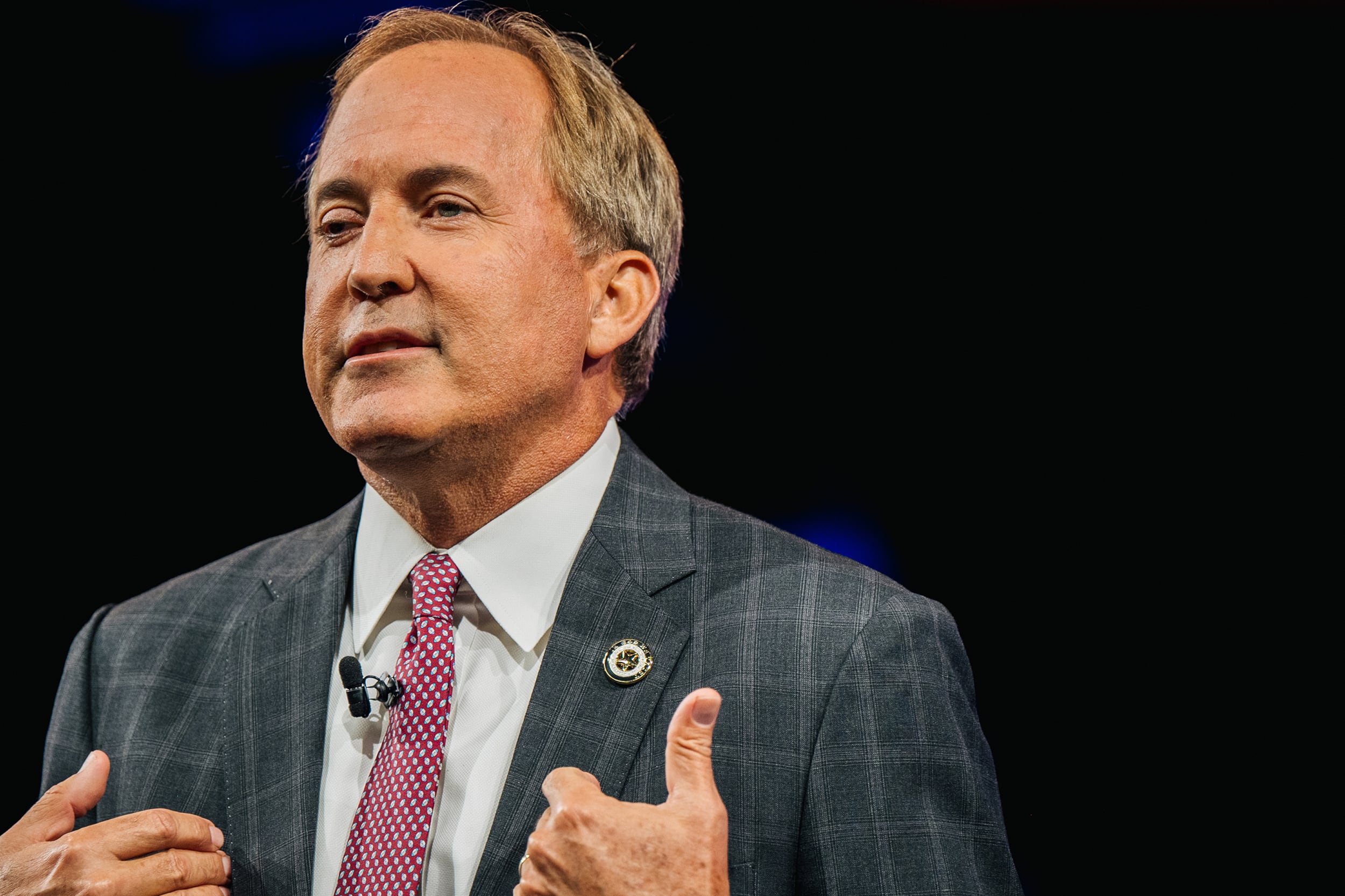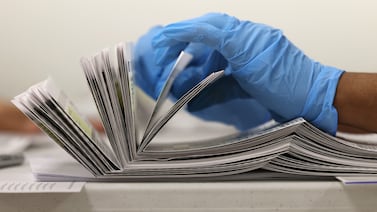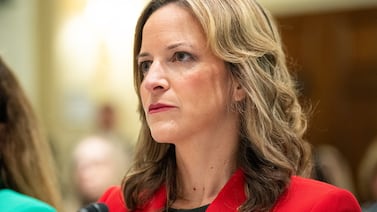Votebeat is a nonprofit news organization reporting on voting access and election administration across the U.S. Sign up for Votebeat Texas’ free newsletter here.
This story was first published by The Texas Tribune, a nonprofit, nonpartisan media organization that informs Texans — and engages with them — about public policy, politics, government and statewide issues.
The Texas House on Tuesday sent a measure to Gov. Greg Abbott’s desk that would let the attorney general’s office independently prosecute election-related crimes, years after the state’s highest criminal court ruled the office could not do so without an invitation from local prosecutors.
Members of the Legislature’s lower chamber voted 85–54 to pass Senate Bill 12, from Sen. Bryan Hughes, R-Mineola, and Republican Rep. Matt Shaheen of Plano, after a roughly hourlong debate that centered on the constitutionality of the measure.
Four years ago, the all-GOP Court of Criminal Appeals ruled the attorney general’s office could not unilaterally prosecute election crimes — such as voter fraud — due to the separation of powers clause of the Texas Constitution.
Democratic lawmakers who opposed SB 12 grilled Shaheen about the bill’s constitutionality, considering the ruling. Shaheen insisted that the bill would “fix” the ruling from the state’s highest court for criminal matters.
A separate proposal to put the measure before voters as a constitutional amendment failed to reach the required two-thirds threshold.
“By passing SB 12, the Legislature ensures that Texas election laws are fully enforceable and that the criminal violations can be prosecuted,” Shaheen said on the House floor Tuesday. “This legislation strengthens public confidence in Texas elections and safeguards the integrity of our democratic process.”
Battle between Attorney General Ken Paxton and court
The bill marks the latest in a long-running effort to give the attorney general’s office the authority that the office’s current leader, Ken Paxton, used in Texas in the wake of the 2020 election, which he unsuccessfully and baselessly argued was stolen from Donald Trump in other states.
Paxton was stopped by the Court of Criminal Appeals when it ruled that he must get permission from local county prosecutors to pursue election cases. Last year he successfully helped unseat three judges who had ruled against him.
The initial decision unleashed a political firestorm fueled by GOP leaders — Abbott and Lt. Gov. Dan Patrick among them — who pressured the court to reconsider. The court did, and affirmed its finding that the separation-of-powers clause of the Texas Constitution allows the attorney general to step into a criminal prosecution — election-related or otherwise — only at the invitation of the local district or county attorney.
During this year’s regular session, the latest push to undo that ruling stalled out due to a disagreement between both chambers.
Abbott then asked lawmakers to reconsider during the current overtime special session, specifically calling for a constitutional amendment, which required two-thirds approval from each chamber and voter approval on the statewide ballot. That measure, which would have asked voters to amend the state constitution, failed to clear the House Tuesday when it fell 16 votes short of the 100 it needed to reach the two-thirds mark.
The constitutional amendment would have established that the attorney general has concurrent jurisdiction with each county or district attorney to prosecute state election crimes.
But the Republican-controlled chamber sent a bill to Abbott’s desk that amends the state’s election code to give the attorney general jurisdiction. That measure needed only a simple majority because it does not involve a change to the Texas Constitution.
Few convictions in Texas election crime cases
Paxton and his political allies say the attorney general’s office should have the power to investigate and prosecute allegations of voter fraud because they say district attorneys in the state’s largest and bluest counties won’t properly pursue such cases. After the Court of Criminal Appeals ruling, Paxton called on the Legislature to “right this wrong,” arguing cases of fraud would otherwise go unpunished.
Evidence of widespread voter fraud remains scant.
While Paxton’s office has opened more than 300 investigations of suspected crimes by voters and election officials, they have successfully convicted only a handful. Many cases crumbled after the ruling, and those who were targeted have described relentless persecution from the state.
Though the constitutional amendment failed Tuesday, Republican lawmakers have argued they can grant the attorney general prosecution power without tweaking the state Constitution.
Hughes, the senator who carried the prosecution bill in the upper chamber, made that case last month, pointing to a state statute that says the attorney general “shall perform other duties as may be required by law.” He said his bill would pass constitutional muster because it adds to those duties by mandating that the attorney general “shall” prosecute election fraud, rather than making it optional, as in the law that was struck down in 2021.
Abbott’s office did not immediately respond to a request for comment about the passage of SB 12 and failure of the constitutional amendment he requested.



